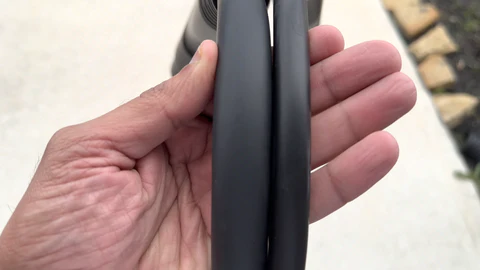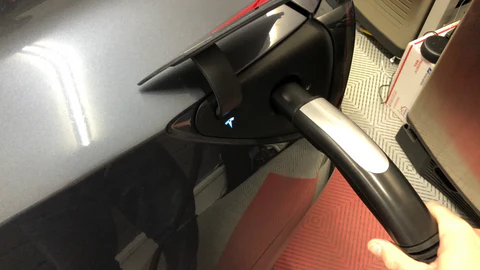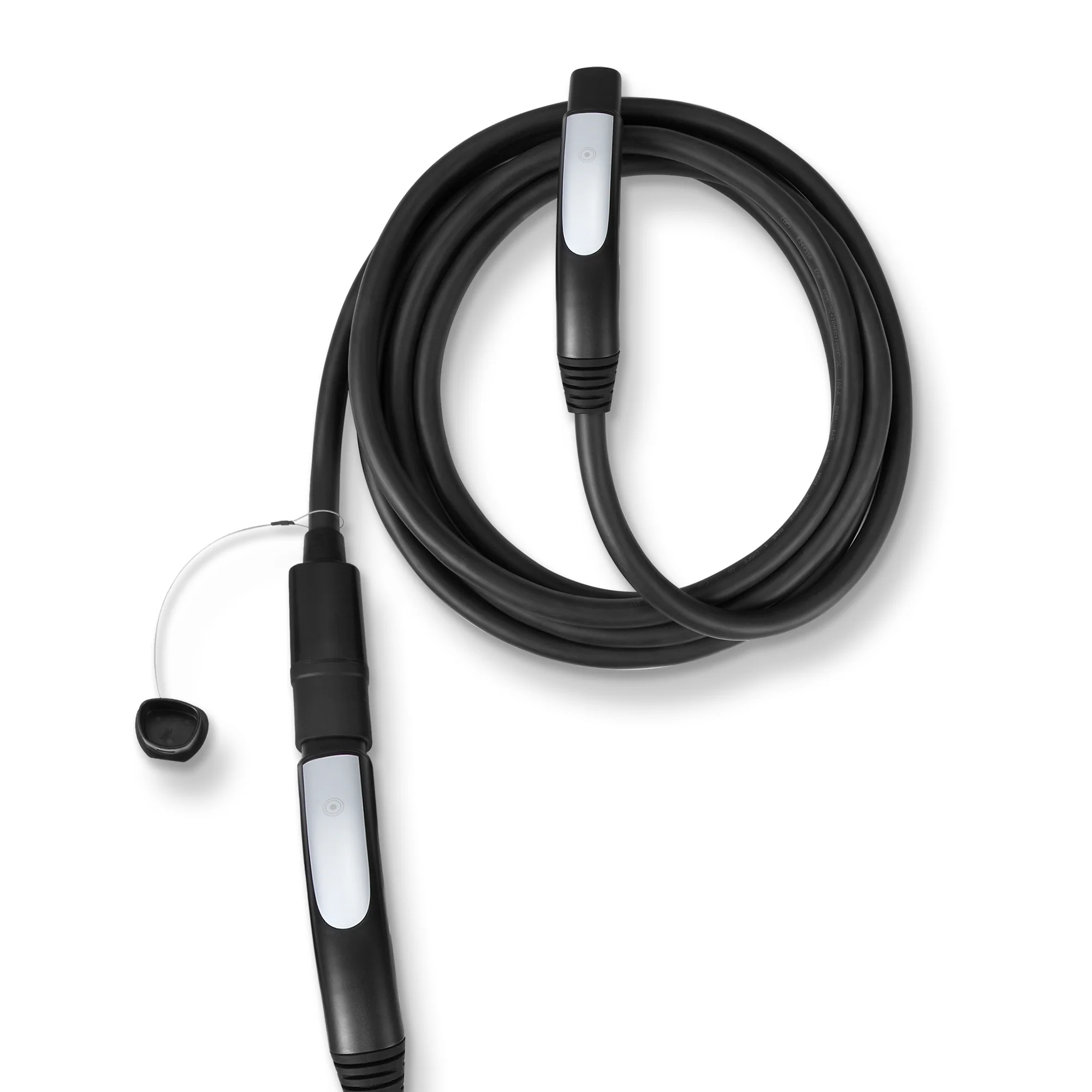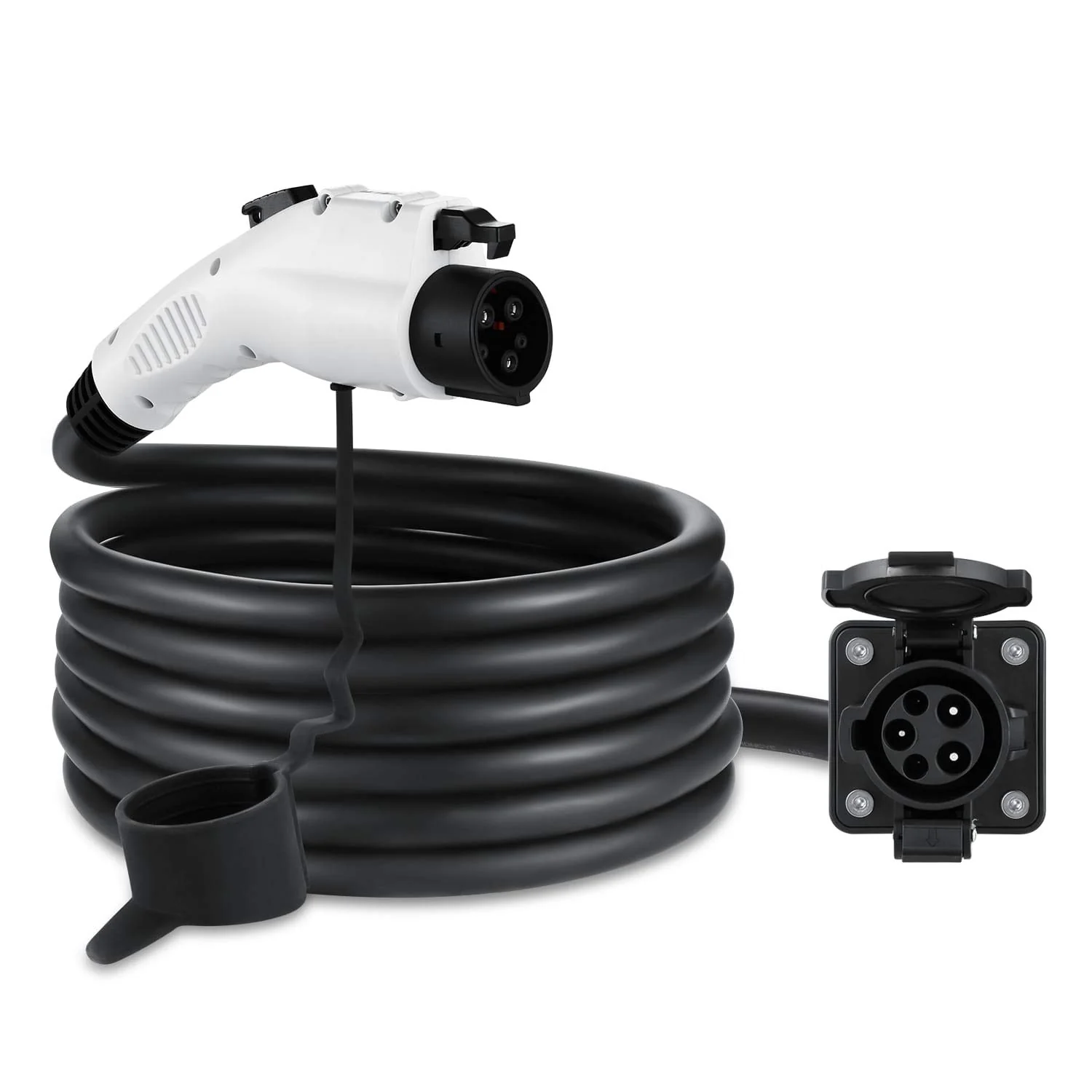Can You Use an Extension Cord With a Car Charger - All You Need to Know
The convenience of charging your electric vehicle (EV) at home is one of its primary selling points. Standard charging cables typically measure anywhere between 15 and 25 meters, which should be enough in an ideal parking situation. However, there may be instances where EV owners may find the length too short, such as those with a detached garage.
Most recently, the opening of the Tesla Supercharging stations to Rivian and Ford EVs caused a bit of a stir as these vehicles are not designed with the Tesla charging cable in mind. Some users reported seeing Rivians occupying multiple parking slots when aligned with the charging station. Tesla NACS ports are positioned on the rear left side of the vehicle. This positioning means that other vehicles need to align differently, either on the rear driver’s side or the front passenger’s side. Rivian, for example, places its ports on the front driver’s side.
Therefore, non-Tesla vehicles must either partially occupy the adjacent stall, park in the far-right stall and extend into the non-charging space to the right, or park on the opposite side of the supercharger, provided they can get close enough. Now you might be wondering: can an EV extension cable be the answer?
Understanding Car Chargers and Extension Cords
EV charging is the transfer of electrical energy from a power source to the electric car battery. There are three levels of EV chargers: Level 1, Level 2, and DC fast chargers, each with different voltage and current requirements. Level 1 chargers typically use a standard 120-volt outlet and are slower, while Level 2 chargers use a 240-volt outlet and offer faster charging times. DC fast chargers provide the quickest charge and are often found at public charging stations.

In EV charging, extension cords are similar to charging cables but with a different configuration. One end is a receptacle where the charger plugs in, and the other end is a plug that connects to the EV's receptacle. However, as of writing, present extension cords in the market can only handle Level 1 and Level 2 chargers.
Factors to Consider
EV extension cords come in various lengths, thicknesses (gauges), and ratings to handle different electrical loads. Unlike domestic extension cords that are a one-size-fits-all solution for low-current appliances, EV extension cables have to meet specific parameters depending on the EV and the charger itself.
Cable Length and Wire Gauge
The required length of the extension cord depends on how far your car is from the power source. Choose a cord that is only as long as necessary to reach your car, avoiding extra slack, as coiled or tangled cords can overheat and become a safety risk. Avoid overly long cords to prevent voltage drop, which can slow down charging or damage your car.

Additionally, the wire gauge of the extension cord is crucial. A thicker wire (lower gauge number) can carry more current without overheating and becoming a fire risk. For instance, a 12-gauge cord is suitable for most Level 1 chargers, while a 10-gauge cord may be necessary for Level 2 chargers.
Amperage and Voltage Ratings
Car chargers have specific amperage and voltage requirements. For example, Tesla vehicles typically require a minimum of 40 amps and operate at a standard voltage of 240 volts for efficient charging. Using an extension cord that matches these ratings is essential for safe and efficient power delivery.
You can choose an extension cord with the appropriate amperage and voltage ratings to ensure compatibility with your car charger. A 240V Tesla extension cord with a 40A rating is a secure choice for Tesla charging needs.
Build Quality

Choose a high-quality extension cord with robust connectors and weather-resistant insulation, specifically designed for outdoor or heavy-duty applications. The cord should withstand temperature variations and exposure to the elements if used outdoors. High-quality build ensures longevity and reliability in delivering power to your car charger.
Safety Features
Safety is paramount when dealing with electrical connections for EV charging. Consider extension cords with safety features such as:
- Overcurrent Protection: To prevent your circuit breaker or fuse from overheating and potential fire hazards.
- Grounded Plugs and Sockets: To minimize the risk of electric shock.
Safety Concerns
While using an extension cord for EV charging is perfectly safe (provided that you get it from a reputable manufacturer), there are still safety concerns when dealing with high-voltage equipment:
Fire Hazards Associated with Using Extension Cords
Using an extension cord that is not rated for the high current demands of a car charger can result in overheating, melting the insulation, and potentially starting a fire. This risk is higher if the cord is used continuously for several hours, as is often the case with car charging.
Overheating Risks and Potential Damage to the Car Charger
Overheating can damage the car charger and reduce its efficiency and lifespan. It can also harm the vehicle’s battery system, leading to costly repairs. Ensuring the extension cord can handle the required current is crucial to prevent these risks.
Electrical Shock Hazards
Improper use of extension cords can increase the risk of electrical shocks due to the high current being transmitted through the cord, which may not be adequately insulated. Using an extension cord rated for the car charger’s requirements helps prevent electrical shock hazards.
Using An Extension Cord with Your Charger
If you must use an extension cord with your car charger, here are some tips to ensure safety:
-
Select the Right Gauge: Choose an extension cord with a lower gauge number (thicker wire) to handle the high current requirements of the car charger. For most Level 1 chargers, a 12-gauge cord is recommended, while for Level 2 chargers, a 10-gauge cord may be necessary.
-
Check Ampere Rating: Ensure the extension cord has an ampere rating equal to or greater than the car charger’s requirement.
-
Minimize Length: Use the shortest extension cord possible to reduce resistance and prevent voltage drops.
-
Inspect Regularly: Regularly check the extension cord for signs of wear and tear, such as frayed wires or damaged insulation, and replace it if any damage is found.
Extension Cord Recommendations
Here are some extension cords specifically designed for EV charging:
Lectron Tesla EV Extension Cord | 20 ft

The Lectron Tesla EV Extension Cord adds an extra 20 ft to your Tesla charger, making it easier to reach and charge your Tesla. This cord supports 48A, 240V, and 11.52 kW charging capacity. Note that the button on the cable does not control the door on the Tesla charge port. The extension cord is heavy-duty and weatherproof, making it safe for outdoor use and perfect for charging on the go. Additionally, it comes with a carrying case for keeping your cable organized and stored safely. This extension cord is compatible only with Tesla High Powered Wall Connectors, all generations of Destination Chargers, and Mobile Connectors, but it is not compatible with Superchargers.
Lectron J1772 EV Extension Cord | 20 ft

The Lectron J1772 EV Extension Cord is compatible with Level 1 and Level 2 chargers with J1772 connectors. It supports up to 40 amp charging and comes with a heavy-duty 20ft outdoor cable. This extension cord features silver platings that provide excellent conductivity and prevent overheating. Made of high-strength ABS plastic, it is stronger and more durable for long-term use. Its waterproof design (IP66 rated) ensures you can use it anytime, anywhere.
FAQs
-
A 12-gauge extension cord is generally suitable for most EV chargers. However, it's essential to check the specific requirements of your charger to ensure compatibility. The lower the gauge number, the thicker the wire and the higher its capacity to carry current without overheating.
-
Yes, using an extension cord is safe if it is specifically designed for EV charging, like those offered by Lectron. These cords are built to handle high-current loads, ensuring safety and efficiency while charging your vehicle.
-
For car chargers, a 10-gauge extension cord is preferable if the charger requires high current (such as Level 2 chargers). For lower current requirements, like with many Level 1 chargers, a 12-gauge cord can suffice. Always match the cord’s gauge to the charger's current requirements for safe operation.
Best Lectron Products for Multi-Network Charging
Trusted by 1M+ drivers; featured in


